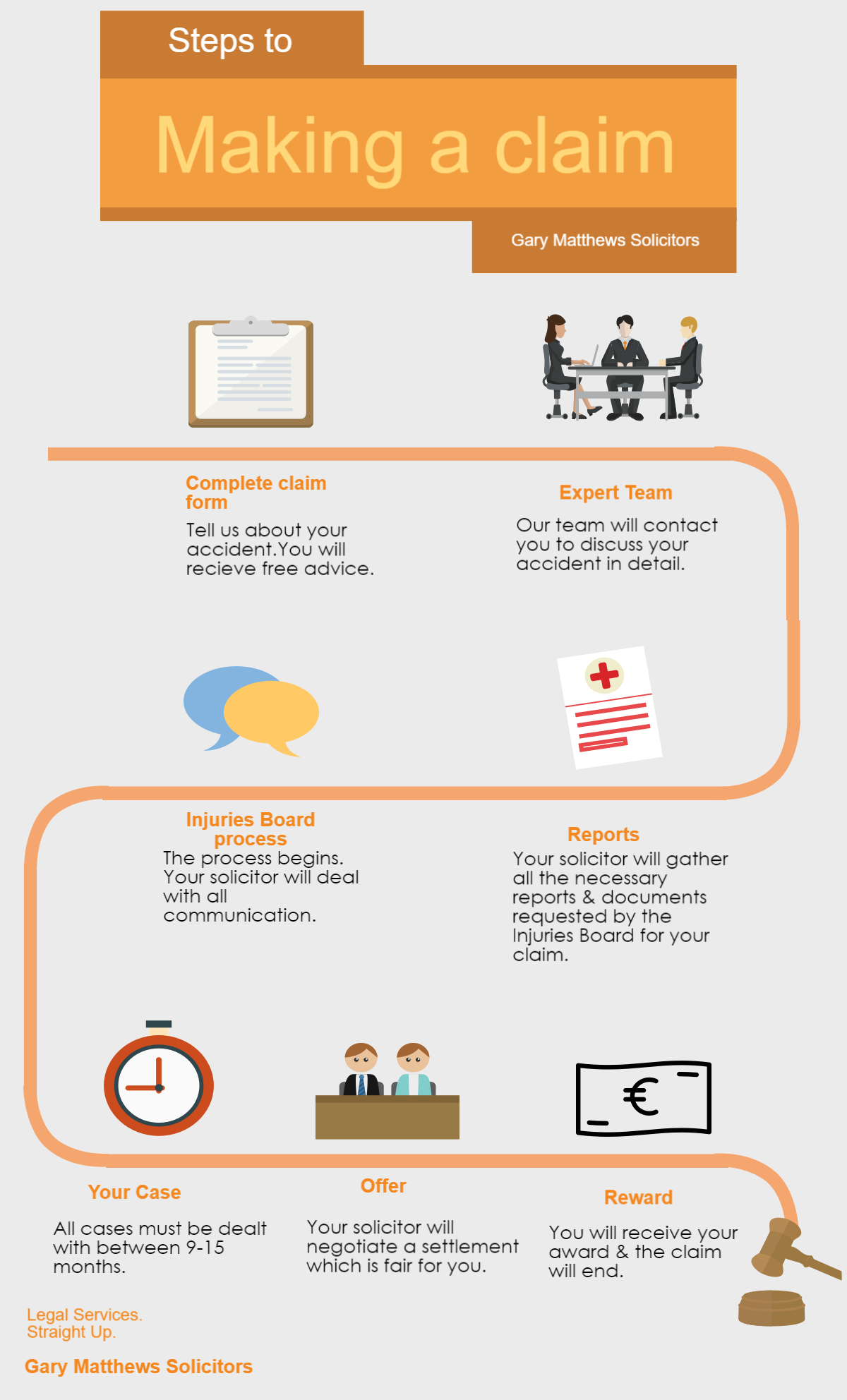Have you sustained injuries by being an innocent passenger?
You may be entitled to claim.
If you have been injured as a passenger in a private vehicle, on a motorbike, commercial or other vehicle or on public transport, then you may be entitled to make a claim for compensation.
It is important to note that it is the responsibility of the negligent driver’s insurance company to deal with your personal injury compensation claim, and not the driver. If the driver was uninsured or the vehicle which caused the accident left the scene and is untraced it may still be possible to make a claim through the Motor Insurers’ Bureau of Ireland Scheme (MIBI). The MIBI compensates victims of accidents caused by uninsured, untraced, or unidentified drivers.
The first step in this process is to notify the MIBI of the accident and the intention to pursue a claim for damages. A MIBI claim notification form will be required to be submitted detailing all available information in respect of the accident such as the date, time, and location, your own personal details, vehicle registration number, injuries sustained and attendances with hospital/Doctors and details of attending Garda.
The MIBI will then investigate the matter and will nominate an Insurance Company to deal with the claim.
MIBI claims can be complicated and there are certain onerous obligations on claimants relying on the scheme. It is always advisable to speak with a Solicitor.
In the majority of cases a passenger is an innocent party and the main issue for consideration is the extent of the personal injuries, loss and damage sustained by the injured passenger and the level of damages considered adequate compensation.
There are circumstances where a passenger claim will face a difficulty, particularly, if it is found that the passenger negligently contributed to his or her own injuries. A finding of what is referred to as contributory negligence may defeat the claim or reduce the level of compensation awarded.
The following are factors to be considered with regard to contributory negligence:-
- Failing to wear a seat belt.
- Travelling in a vehicle knowing the driver to be intoxicated.
- Travelling in a vehicle knowing that it is not covered by insurance.
- Travelling in a stolen vehicle.
Expert legal advice should always be sought when injured as a passenger.
If you were a passenger in a vehicle involved in a road traffic accident within the last two years and you have suffered personal injuries, then you may be entitled to make a claim for compensation depending on the circumstances.
If you, or someone you know, has been injured by being an innocent passenger, we strongly recommend you get immediate impartial, independent legal advice from an experienced claims solicitor by calling Gary Matthews Solicitors directly on 01 903 6250, or by logging onto our website www.gary.ie and completing the online enquiry form.



 ou are in a relatively minor car crash and only see a doctor or physical therapist for a month or so, by the time your Solicitor obtains all the medical records and bills, submits them to the insurance company, and there is an offer on the table, it is months after the crash. Do you remember how many times you mowed your lawn last year or how many times you washed the car last year? Exactly! Since most of us are so busy we can hardly remember what is for dinner or what we have to pick up at the shop on the way home tonight, we can hardly be expected to recall specific limits on our activity from months, or years ago. If court proceedings have to be issued, the earliest it will go to trial is a year or year and a half after the date of the incident. In complex cases, this could be as much as 4 years or more after the actual incident occurred. How can you remember your medical treatment and limits on your activity from that long ago? A diary is a great way to do this!
ou are in a relatively minor car crash and only see a doctor or physical therapist for a month or so, by the time your Solicitor obtains all the medical records and bills, submits them to the insurance company, and there is an offer on the table, it is months after the crash. Do you remember how many times you mowed your lawn last year or how many times you washed the car last year? Exactly! Since most of us are so busy we can hardly remember what is for dinner or what we have to pick up at the shop on the way home tonight, we can hardly be expected to recall specific limits on our activity from months, or years ago. If court proceedings have to be issued, the earliest it will go to trial is a year or year and a half after the date of the incident. In complex cases, this could be as much as 4 years or more after the actual incident occurred. How can you remember your medical treatment and limits on your activity from that long ago? A diary is a great way to do this!

